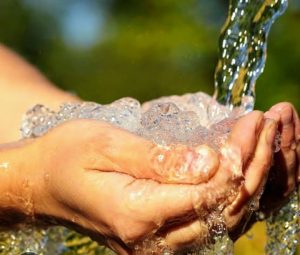

(News analysis)
By Dada Ahmed.

(C) National Day
As the world marked World Water Day on March 22, 2025, with the theme “Glacial Preservation,” the focus remains on the critical need for sustainable water management and access to clean water. While glaciers hold vast amounts of the Earth’s freshwater, millions across Nigeria, including Kogi State, struggle to access potable water for daily survival.
Water is not just a necessity for hydration but also a pillar of health, sanitation, and economic growth. Its availability determines the quality of life in a community, influencing public health, education, industry, and agriculture.
The implication of lack of potable water is better said than experienced as experts warn that without urgent intervention to solve such a critical problem, it could undermine development efforts, leaving many residents vulnerable to waterborne diseases, poor hygiene, and economic instability.
Kogi State, known for its strategic location at the confluence of the Rivers Niger and Benue, should ideally have abundant water resources. The availability of this previous resource notwithstanding, the supply of clean water for public consumption remains a tall dream for many residents.
One of the most devastating moments in Kogi’s water crisis occurred in 2022, when severe flooding submerged the Greater Lokoja Waterworks, the primary facility for distributing clean water in the state. This event, triggered by heavy rainfall and the release of excess water from upstream dams, led to massive displacement of residents, destruction of property, and a critical disruption in water supply.
The submerging of the Greater Lokoja Waterworks seriously affects the state government’s ability to supply adequate potable water, forcing residents to rely on alternatives such as wells, streams, and boreholes, leaving the residents with consequences.
In response to the water challenge, the Kogi State Government launched emergency measures to mitigate the impact.
These include, taking stock of the damage at the Greater Lokoja water works,rehabilitation of old water treatment plants in Lokoja to restore clean water distribution in some parts of Lokoja.
The state government has also made conscious effort in increasing daily water supply to two million liters through temporary facilities while repairs on the Greater Lokoja Waterworks being worked on among other measures.
While the state government’s intervention has brought some relief, experts argue that short-term fixes will not solve the problem permanently and advocate sustainable solutions.
These include flood-resilient infrastructure to enable the upgrading its water facilities to withstand extreme weather conditions. Reinforcing water treatment plants and reservoirs against flooding is essential.
There is also the need for diversification of water sources,thus giving credence to the need for the government to take a critical look on the issue of over-reliance on surface water.
Environmental experts add voices by calling for investments in boreholes, rainwater harvesting, and groundwater purification to ensure alternative supplies during water crises.
Concerned members of the public in Lokoja are also on the opinion that public-private partnerships (PPPs) will encourage private sector involvement in water management to enhance efficiency and accountability.
What more, community engagement whereby residents are educated on water conservation, proper sanitation practices, and the dangers of contaminated water has been described as an effective solution to potable water challenge in the state.
If the government and stakeholders increase proactive steps and meetings,like the similar exercise organized recently by the state Ministry of Water Resources, the dream of the people to access clean, safe, and affordable water in Kogi State will become a reality.
No doubt, an improved water supply will bring far-reaching benefits such as improved public health translating into reducing the prevalence of waterborne diseases.
Adequate availability of potable water in kogi will also have a positive impact on businesses and industries will flourish, thereby attracting investors and creating job opportunities.
Tourism will thrive, as places like the Confluence of Rivers Niger and Benue will become more accessible and appealing to visitors,if tourists are availed with potable to take care of their needs while catching glimpse of the beautiful nature of the Confluence.
As the world commemorates World Water Day, it is a stark reminder that clean water is not a luxury but a fundamental human right. For Kogi State, achieving this goal require visionary leadership, sustainable policies, and active community involvement as being actively galvanized and demonstrated by the Governor, Alhaji Ahmed Usman Ododo and his lieutenants in piloting the leadership of the state.
In essence ,it is apt to say that the time for action is Certainly,a water-secure Kogi is possible, but only with collective commitment and strategic planning. The people of the state deserve nothing less.


